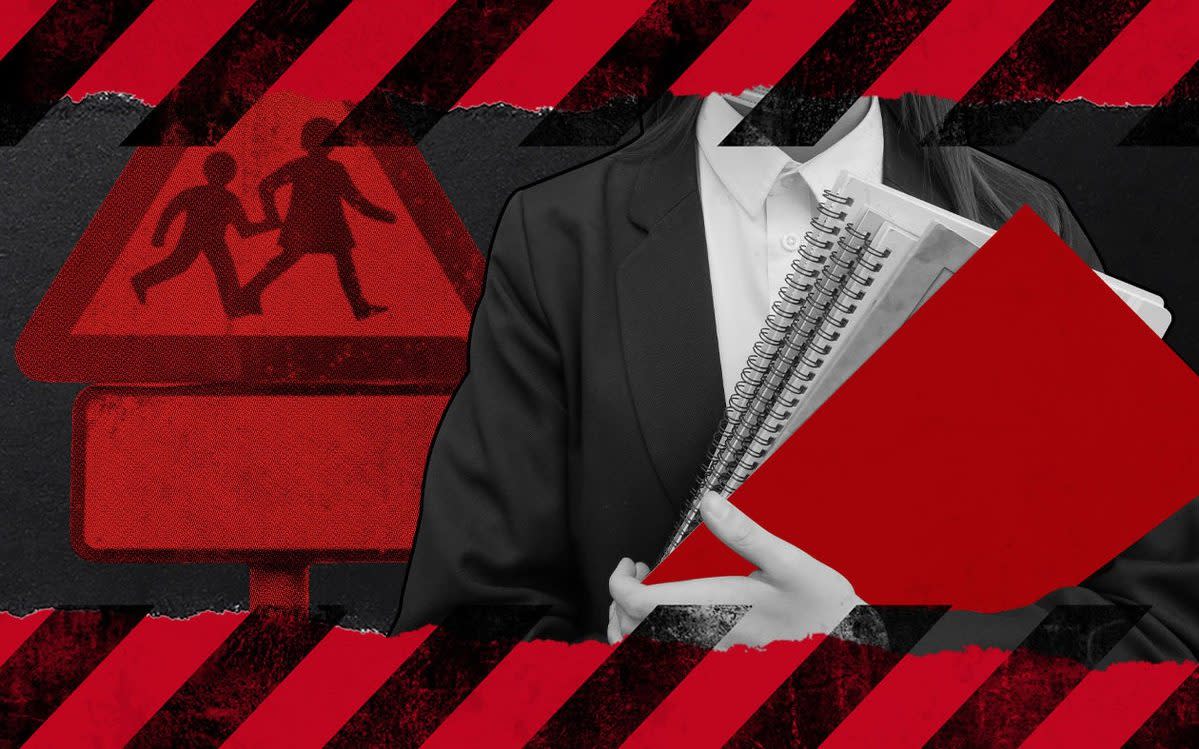We are in danger of creating a nation of lost Einsteins

Leadership has become so dumbed down that some bosses are being handed 40-page documents telling them how to answer a question.
Reeling off drivel from an instruction manual might help marketing teams sleep better at night, safe in the knowledge that nobody is about to put their foot in it, but it doesn’t offer much inspiration to young colleagues on the lookout for a role model.
The next generation will hardly be encouraged to dream big if those at the top are only trusted to talk shop when armed with a list of bland pre-written responses (pretty normal, beams the young author of one such handbook).
There is a wider societal problem when a lack of inspiration in the workplace follows a lack of inspiration at school.
Masterminds are at risk of becoming so-called lost Einsteins when education, and then the workplace, fails to nurture them. Business leaders wondering where all the talent has gone have started to clock that their problems actually begin at the school gates.
Schooling and exposure to certain role models make all the difference in whether or not someone fulfils their potential or becomes a lost Einstein, America’s Equality of Opportunity Project once said.
Innovation drives economic growth, and yet for many young geniuses with the ability to spot a life-changing discovery it can be hard for them to see the opportunity. There is little room for enlightenment when exhausted teachers in underfunded schools are dealing with violence and collapsing ceilings.
A headteacher last week said that he had been in tears over the amount of violence in the Kent school where he and other teachers have been striking over their safety.
As teachers are forced to divert their attention away from promising pupils in order to tackle increasingly violent behaviour (more than one in 10 teachers reported being physically assaulted in the year to April), bright students are ending up lost and overlooked.
A damning study last year concluded that the UK education system was “failing on every measure” with 60pc of parents believing that schools don’t prepare children for work. Problems in the classroom filter straight into the boardroom.
“Go and talk to business people like me and a lot of them will complain that they can’t get the skills that they need in the UK,” Santander’s UK chairman William Vereker, the former business envoy of ex-prime minister Theresa May, tells me.
The end of free movement post-Brexit has hardly helped the issue. Bosses at companies big and small admit behind closed doors that they have grown increasingly frustrated with the lack of suitable candidates in recent years.
“My word we’ve been through some,” sighs the co-founder of one start-up. “We get sick of having to do so much spoon-feeding, I’m amazed that schools and universities don’t do more to actually prepare you for life at work.”
It’s a problem that ultimately impacts us all. Big ideas that could revolutionise certain sectors never see the light of day because people never get a chance.
A teenager with the ability to become the next star inventor has already had their education disrupted by Covid and could now be studying in a school where teachers are distracted by violence or a roof that might cave-in because of dangerous concrete – almost 200 schools in England have reinforced autoclaved aerated concrete on their premises.

Santander’s UK chairman might be among the many who are fed up with worker shortages, but teachers do not have the capacity or budget to dream up ways to make the recruitment process easier for businesses with a £54bn market cap.
Vereker is well aware of that fact. He believes that companies must stop relying on the state to fix the country’s skills gap and invest more in education themselves, arguing that there’s “too much expectation” on Whitehall to come to the rescue.
It’s a call to action that comes at an apt time. As schools crumble and universities haemorrhage cash (30 universities reported financial losses in the last academic year), Jeremy Hunt has just unveiled what he called the “biggest business tax cut in modern British history”.
If managers really are as fed up as they say they are with the lack of talent around, then now seems like a decent time to do something about it. The bump businesses get from those tax cuts could be sprinkled across the cash-starved education sector and poured into learning, eventually benefiting everyone.
The focus needs to be on inspiring these potential Einsteins before they become lost. The country doesn’t need hundreds of new stationery cupboards, it needs something for students to aspire to and get excited about.
A number of big conglomerates, including IBM, AT&T and Vereker’s Santander, have already made efforts to fill the skills gap by retraining staff, sponsoring degrees or setting up free courses and hopefully there is more of that to come.
But more support is needed at an earlier age, when pupils are starting to wonder what they want to do with their lives. Companies could offer inspiration lacking in underfunded schools.
Hyundai is now sponsoring school trips across the country after finding that children are missing out owing to the cost-of-living crisis and staffing issues. Nomura bankers are teaching high-school students in Japan how to invest future money.
These small contributions could make a big difference. Instead of moaning about labour shortages from the comfort of their boardrooms, it’s time for big business to get to the root of the problem.

